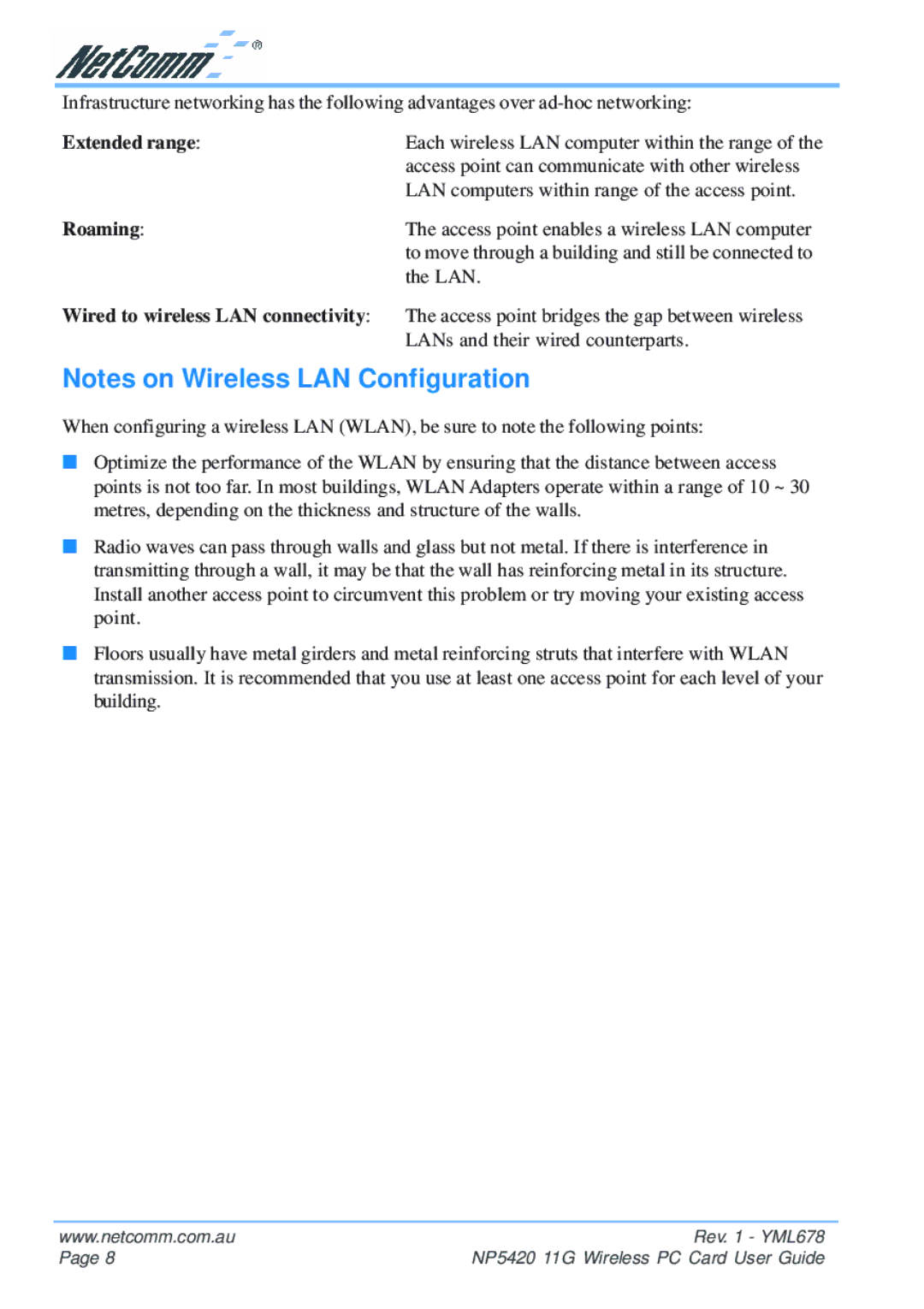
Infrastructure networking has the following advantages over
Extended range: | Each wireless LAN computer within the range of the |
| access point can communicate with other wireless |
| LAN computers within range of the access point. |
Roaming: | The access point enables a wireless LAN computer |
| to move through a building and still be connected to |
| the LAN. |
Wired to wireless LAN connectivity: | The access point bridges the gap between wireless |
| LANs and their wired counterparts. |
Notes on Wireless LAN Configuration
When configuring a wireless LAN (WLAN), be sure to note the following points:
■Optimize the performance of the WLAN by ensuring that the distance between access points is not too far. In most buildings, WLAN Adapters operate within a range of 10 ~ 30 metres, depending on the thickness and structure of the walls.
■Radio waves can pass through walls and glass but not metal. If there is interference in transmitting through a wall, it may be that the wall has reinforcing metal in its structure. Install another access point to circumvent this problem or try moving your existing access point.
■Floors usually have metal girders and metal reinforcing struts that interfere with WLAN transmission. It is recommended that you use at least one access point for each level of your building.
www.netcomm.com.au | Rev. 1 - YML678 |
Page 8 | NP5420 11G Wireless PC Card User Guide |
